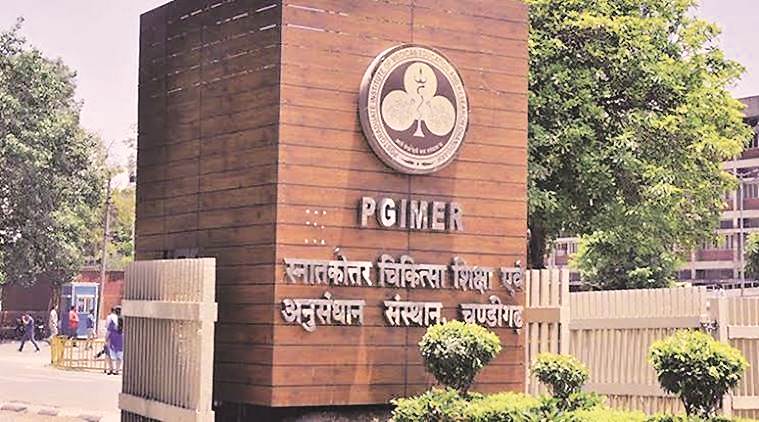 Doctors and researchers at PGIMER published a paper in the British Medical Journal, on the need to address social determinants and cultural context of addicts in order to reverse the tobacco epidemic in Punjab.
Doctors and researchers at PGIMER published a paper in the British Medical Journal, on the need to address social determinants and cultural context of addicts in order to reverse the tobacco epidemic in Punjab.
Doctors and researchers from the Department of Community Medicine and School of Public Health at the Post Graduate Institute of Medical Education and Research (PGIMER) on Friday published a paper in the British Medical Journal (BMJ), on the need to address social determinants and cultural context of addicts in order to reverse the tobacco epidemic in Punjab.
The paper which was written by researcher Garima Bhatt under the supervision of Dr Sonu Goel from PGIMER, presents case studies of tobacco users in Punjab to reveal how de-addiction programs can work more effectively if the cultural context and social vitals and taboos around tobacco use are addressed along with providing clinical care.
The study claims that that “ostracism due to religious proscriptions serve as a barrier and prevent users from revealing their addiction status”. It further adds that a religion as an institution has a great influence on the “cultural identity of individuals, moderating uniformity and behavior in their social lives”.
The researcher adds that “quitting tobacco use through a culturally specific, patient-centric, individualised, behavioural intervention using religion as a backdrop” is an effective means of tacking the issue.
According to the World Health Organisation (WHO), non-communicable diseases (NCD) account for almost 63 per cent of all deaths in India. Tobacco use is seen as a major risk factor for acquiring NCDs and contributes to 48 per cent of cardiovascular diseases, 23 per cent chronic respiratory diseases and 10 per cent of Cancer deaths in India.
Against this backdrop, Bhatt has been working on her thesis on tobacco cessation, and the case study she published in BMJ is part of her thesis research. “We always look at clinical or preventive medicine when it comes to substance use such as tobacco. However, we have forgotten the social diagnosis aspect of it. Even the WHO stresses on social determinants of health,” says Bhatt. “Especially in de-addiction programs, patients need to go back to their social setting after which they might relapse again, this is why it is crucial to also address social medicine and understand particular cultural contexts,” adds the researcher.
In her paper, Bhatt has particularly analysed how Sikhism as a religious institute structures the stigma and taboo around tobacco users in Punjab; since 57.6 per cent of the state’s population profess Sikh faith.
Tracing the history of Sikh practices, the paper claims tobacco use has always been banned in the religion, and hence most Sikh tobacco users remain discrete about their tobacco dependency.
“This is why it was important to look at cultural and religious practices. What is seen as taboo here in Punjab, might be seen as completely normal in central states of India, or even in the neighbouring Haryana,” claims Bhatt.
While visiting and interacting with outpatients at NPD clinics in different parts of Punjab, Bhatt discovered a pattern in which Sikh tobacco users refused to get help for their addiction as they were afraid of revealing that they used tobacco. Bhatt found a patient who told her he did not use tobacco but had yellow stains on his teeth indicative of his regular use of oral tobacco products. Furthermore, the patient had hypertension which remained uncontrolled despite him taking anti-hypertensive medicines regularly.
Bhatt saw many patients who refused to reveal their tobacco use to local physicians fearing stigma and started visiting one such patient on a regular basis in order to understand the social determinants that did not allow for him to seek proper help for his addiction.
She also found out that to remain discrete about their tobacco use- most patients ate zarda – an oral form of tobacco- rather than consuming tobacco through smoking. “The use of zarda is not associated with the typical smell and smoke of smoked tobacco products,” states Bhatt in her paper.
Bhatt began to build a rapport with such patients, focussing particularly on one patient that she used as her case study for the paper. She realised that by citing religion, which was the initial “barrier” she encountered in reaching out to tobacco users, she could also appeal to these users to cease tobacco use. According to the paper, she told a user that if “he was fearful of seeking help due to this reason, he could still decide, make a choice and go back to the roots of Sikhism, which urged its followers to abstain from tobacco,”.
The research also made sure to give clinical tips on ceasing tobacco use via short messages in his vernacular Punjabi. “The patient was given disease-specific pamphlets, and SMS (short text messages) in vernacular language were sent to him containing simple tips to overcome his cravings for tobacco (such as not purchasing tobacco pouches on his own, not asking anyone to purchase for him,” she writes in the paper.